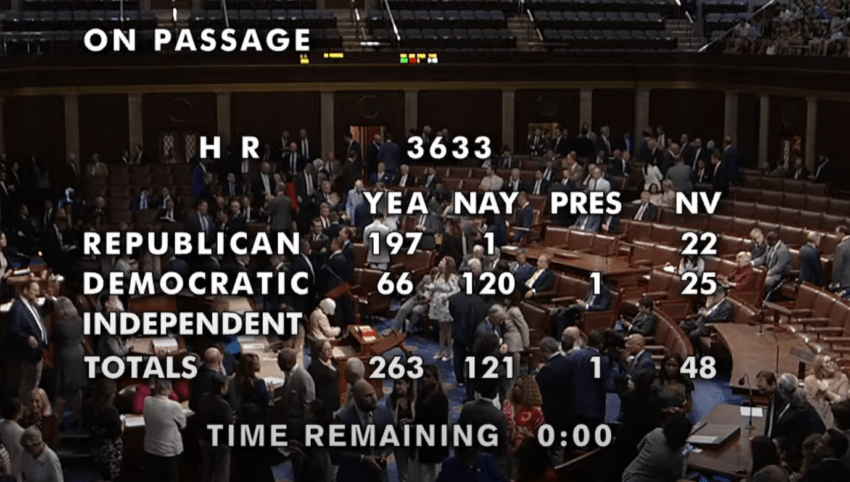
The US House of Representatives has officially passed the Digital Asset Market Structure Clarity Act, known as the CLARITY Act.
The bill creates clear definitions for digital assets and divides regulatory oversight between the SEC and the CFTC. Legislators voted to approve the bill after days of political deadlock during 'Crypto Week'.
CLARITY Act Approved in the House
The law defines when a token is a security or a commodity. It allows projects to certify themselves as 'mature blockchains', reducing oversight if they are sufficiently decentralized.
It also creates new registered categories at the CFTC for exchanges and brokers of digital assets. These entities must meet strict standards for custody, AML, and transparency.
Importantly, the law establishes a safe harbor exemption of $75 million for the issuance of digital commodities. Issuers must provide regular disclosures and comply with investor protections.

The bill affirms individuals' right to self-custody of crypto wallets. It also anticipates conflicting state laws, ensuring national regulatory consistency.
The CLARITY Act now moves to the Senate, where its future remains uncertain. Some Democrats have expressed concerns about reducing the SEC's authority.
However, its approval in the House marks the most comprehensive crypto legislation in the US to date. It provides the long-awaited regulatory clarity for projects, exchanges, and investors.
If approved by the Senate, the bill will become law once signed by President Trump. His administration has expressed strong support for the measure.
This vote follows the House's earlier approval of the GENIUS Act—a stablecoin regulation bill—expected to be signed into law today.
What's next?
The Senate will now review the bill. If approved, implementation would begin in 2026 through SEC and CFTC regulation. The industry is awaiting final details.
The article 'US House Approves CLARITY Act to Define Crypto Regulation in Historic Vote' was first seen on BeInCrypto Brazil.





